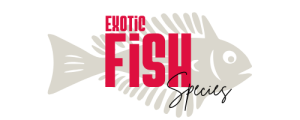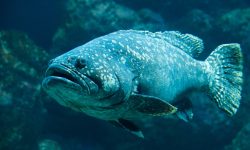Chubby Fish
Have you ever wondered why some fish end up looking a bit rounder than others? In this blog post, we will explore the causes behind fish obesity and the effects it can have on their health. Additionally, we will discuss ways to prevent your fish from becoming chubby and provide tips on maintaining a proper diet and nutrition for them. We will also delve into the various exercising options available to help keep your fish fit and healthy. So, join us as we dive into the world of chubby fish and discover how to keep them in top shape.
What causes a fish to become chubby?
A chubby fish is often a result of overfeeding and a lack of exercise. When a fish consumes more food than it needs, the excess calories are stored as fat, leading to weight gain and a rounded appearance. Just like humans, fish can become overweight when they have access to an excessive amount of food or when they are fed high-calorie diets. It is important for fish owners to understand the factors that contribute to fish obesity in order to prevent their beloved pets from becoming chubby.
1. Overfeeding: One of the main causes of a chubby fish is overfeeding. Many fish owners mistakenly believe that their pets need to be fed frequently or in large quantities. The truth is, fish only require small amounts of food and have specific dietary needs. Overfeeding can lead to excessive calorie intake, which is stored as fat in the fish’s body. It is important to feed fish in moderation and according to their specific dietary requirements to prevent them from becoming chubby.
2. Poor Diet: Another factor that contributes to fish obesity is a poor diet. Certain types of fish food, such as those high in fat or carbohydrates, can lead to weight gain in fish. It is crucial to provide fish with a balanced diet that offers the necessary nutrients without excess calories. High-quality fish food that is formulated for the specific species of fish can help prevent them from becoming overweight. Additionally, offering a variety of foods, such as live or frozen treats, can promote a healthy diet for fish.
3. Lack of Exercise: Fish, like any other living creature, require exercise to stay healthy. Swimming and exploring their environment are essential for fish to maintain a healthy weight and musculature. When fish are confined to small tanks or aquariums with limited space, they may not get enough exercise, leading to weight gain. Providing fish with an adequately sized tank or pond, as well as adding decorations and structures for them to swim around, can help promote exercise and prevent fish from becoming chubby.
Effects of obesity on fish health
The Effects of Obesity on Fish Health
Obesity is not just a concern for humans, but for our aquatic friends as well. Just like in humans, obesity in fish can have detrimental effects on their overall health and well-being. Excessive weight gain in fish can lead to a variety of health issues and can significantly reduce their lifespan. It is important for fish owners and enthusiasts to understand the effects of obesity on fish health and take the necessary measures to prevent or address it.
1. Increased Risk of Diseases: Obesity in fish can weaken their immune system, making them more susceptible to various diseases and infections. Excess fat tissue can hinder their body’s natural defense mechanisms, making it difficult for them to fight off pathogens. This can lead to frequent illness and a lower overall resistance to diseases.
2. Strain on Organs: Carrying excess weight can put a significant strain on a fish’s organs, including the heart, liver, and kidneys. These organs have to work harder to support the extra weight, which can lead to organ failure or dysfunction over time. This strain can also affect the fish’s ability to perform essential bodily functions, such as digestion and excretion.
3. Reduced Mobility: Obesity can limit a fish’s mobility and agility, making it difficult for them to swim and explore their environment. This lack of exercise can further contribute to weight gain and muscle atrophy. Reduced mobility can also affect their ability to compete for food or evade predators, posing additional risks to their survival.
4. Decreased Reproductive Success: Obesity can also impact a fish’s reproductive capabilities. Overweight fish may experience difficulties in mating, spawning, or carrying eggs. This can result in reduced reproductive success and hinder the population growth of certain fish species. Obesity can also increase the risk of complications during the reproductive process.
Overall, obesity has significant negative effects on the health and well-being of fish. It is crucial for fish owners to take proactive measures to prevent obesity in their aquatic pets. Providing a well-balanced diet, monitoring their feeding habits, and encouraging regular exercise can help keep fish healthy and prevent the onset of obesity-related complications. By prioritizing the health of our fish, we can ensure their longevity and well-being in our care.
How to prevent fish from becoming chubby
Fish can be a delightful addition to our homes, but it’s important to take care of their health, just like any other pet. One common concern that fish owners have is the possibility of their fish becoming chubby. While chubby fish may look adorable, it can actually be harmful to their overall well-being. In this blog post, we will explore some helpful tips and strategies to prevent fish from becoming chubby and ensure their longevity.
Proper Feeding Routine: One of the most crucial aspects of preventing fish from becoming chubby is maintaining a proper feeding routine. Overfeeding is a common mistake made by many fish owners. It’s essential to understand that fish only require a small amount of food each day. To prevent overfeeding, it’s best to feed them small portions multiple times a day rather than one large meal. This prevents excessive consumption and ensures that the fish are getting their necessary nutrients without overindulging.
Varied and Balanced Diet: Another vital factor in preventing fish from becoming chubby is providing them with a varied and balanced diet. Just like humans, fish need a diverse range of nutrients to thrive. A high-quality commercial fish food should serve as the foundation of their diet. However, it’s also important to supplement their meals with occasional treats such as live or frozen foods like bloodworms or brine shrimp. This helps replicate their natural diet and prevents boredom, reducing the likelihood of overeating.
Regular Exercise: Believe it or not, fish need exercise too! While they may not have legs like other pets, they still require physical activity to stay fit and healthy. Providing a suitable environment with ample space for swimming is crucial. Additionally, adding tank decorations, such as tunnels, plants, and toys, creates an engaging environment for fish to explore and swim around. This not only keeps them physically active but also mentally stimulated, effectively preventing them from becoming chubby.
Proper diet and nutrition for fish
Proper diet and nutrition are vital for the overall health and well-being of fish. Just like humans, fish require a balanced and nutritious diet to thrive and maintain optimal health. Providing the right diet can help prevent various health issues and ensure that fish live a long and happy life.
When it comes to feeding fish, it is essential to consider their natural dietary preferences and requirements. Different species of fish have different feeding habits and nutritional needs. Some fish are herbivores and primarily consume plant matter, while others are carnivores and prefer a diet rich in protein. Omnivorous fish, on the other hand, have a varied diet and can consume both plants and animal-based foods.
To ensure a proper diet for your fish, here are a few key points to keep in mind:
Exercising options for chubby fish
When it comes to keeping our fish healthy, diet and exercise are both important factors to consider. While we often focus on providing a proper diet and nutrition for our aquatic friends, we may sometimes overlook the need for exercise. Just like humans, fish also require physical activity to stay in shape and maintain a healthy weight. In this blog post, we will explore some exercising options for chubby fish and understand why exercise is crucial for their overall well-being.
1. Introducing a fish-friendly obstacle course:
2. Utilizing a fish treadmill:
3. Engaging in interactive play:
In conclusion, exercise is a vital aspect of maintaining the health and well-being of our chubby fish. By implementing fish-friendly obstacle courses, utilizing fish treadmills, and engaging in interactive play, we can provide opportunities for our fish to exercise and stay fit. Remember, just like humans, fish thrive when they have a balanced combination of proper diet and regular exercise. So, let’s dive into creating an exercise regimen for our aquatic companions and ensure their long and healthy lives!
Frequently Asked Questions
Question 1: What causes a fish to become chubby?
A fish becomes chubby when it consumes more food than it needs and the excess calories are stored as fat. Overfeeding, lack of exercise, and a poor diet can contribute to a fish becoming chubby.
Question 2: What are the effects of obesity on fish health?
Obesity can have several negative effects on a fish’s health. It can lead to reduced mobility, organ damage, and decreased lifespan. Obese fish are also more prone to diseases and infections.
Question 3: How can I prevent my fish from becoming chubby?
To prevent your fish from becoming chubby, it is important to feed them the right amount of food and provide them with a balanced diet. Avoid overfeeding and limit high-fat or low-nutrient treats. Regular exercise and creating an enriching environment can also help prevent obesity in fish.
Question 4: What is a proper diet and nutrition for fish?
A proper diet for fish should include a variety of balanced and species-specific foods. This can include high-quality commercial fish pellets, flakes, or frozen foods. It is important to provide a variety of nutrients, including proteins, fats, vitamins, and minerals, to meet the fish’s specific dietary requirements.
Question 5: What are the exercising options for chubby fish?
Fish can be exercised by providing them with an environment that encourages movement, such as a larger aquarium or adding obstacles and toys for them to interact with. Additionally, some fish species may benefit from carefully controlled swimming exercises or the use of specialized devices designed for fish exercise.
Question 6: How often should I feed my fish to prevent obesity?
The frequency of feeding depends on the specific species of fish. As a general guideline, most fish should be fed small amounts 2-3 times a day. It is important to avoid overfeeding, as this can lead to obesity and other health issues.
Question 7: Can I control the weight of my fish through diet alone?
While diet plays a significant role in the weight of a fish, it is not the only factor. Providing an enriching environment and encouraging exercise are equally important. Diet alone may not be enough to control or reduce weight in fish.



